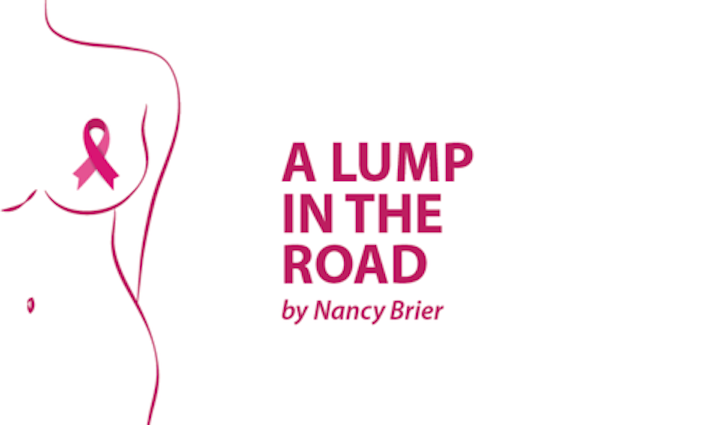“It’s cancer,” my friend said. She had seen a doctor for something unrelated, but now she’s freaking out. Mostly about the money.
The tumor they found in her right breast is small, but it’s rocking her world. “I can’t afford time off work,” she said. “And I won’t be able to pay for breast reconstruction.”
The fact that my friend is more worried about money than survival in the face of a cancer diagnosis is maddening. How the hell did we get to this place? The fact that a curable diagnosis can have such a devastating impact shows how screwed up our healthcare system is.
When she told me her news, I had a vision of the hand grenade that landed on my own financial security when I got my diagnosis. All my life, I’ve been a careful saver, and in that moment, the payoff of my sacrifices evaporated.
My breast cancer diagnosis coincided with the onset of the Affordable Care Act (ACA), and five years later, I’m still looking at piles of unpaid bills. The new law canceled my family’s existing insurance coverage and replaced it with a new plan. No doctors took the new plan, however, and none of the codes that receptionists typed into the computer were accepted.
What made things worse for my family is that my husband and I are self-employed. For that reason, safety nets like disability benefits and paid family leave are not available to us. At the time, we lived in a rural area. Our town, with its population of 900 people, has spectacular walnut orchards, but not a single oncologist. When we moved there, we weren’t thinking about cancer.
The most immediate blow came right after my mammogram. A nurse confirmed that my lump was cancer, but without valid insurance codes, I couldn’t see a doctor.
At night, while I slept, I dreamed of my tumor growing larger. All day, Gary and I clung to the phone, explaining our situation over and over or waiting on hold while awful music played in loops. What we weren’t doing was working — and when you’re self employed, if you don’t work, you don’t get paid.
“I’ll give you an hour,” an oncologist finally said. He was a dim light in a dark hole. “Bring $300 in cash. You’ll have to pay first before I do the exam.” I felt like I was setting up a date with a drug dealer — a nasty one.
At that appointment, Gary peeled off three bills and handed them to a receptionist who guarded the gateway to the doctor’s expertise. I remember seeing a withered plant drooping from a dirty hanging basket just behind her head and thinking that it needed water. The office hadn’t been painted since the Reagan administration, but I was happy to be there anyway, happy to cling to the sliver of hope it offered.
“The problem is that you need chemo immediately,” the doctor said in a somber tone. “Without it, you’ll be gone in three months, maybe six.”
“Dead,” he meant. By “gone,” he meant “dead.”
“You can’t get chemo without insurance. No one’s going to give it to you for free, and you won’t be able to afford it.”
The irony is that we did have insurance, and the canceled checks to prove it. When the ACA passed, a three-digit code was attached to our policy number, and those extra digits made the account invalid, but we still had to pay for it. And I’m still paying for it. As a nation, we’ve moved on, but as a family, we’re still stuck with the bills. We’re long-term collateral damage.
That year, my husband and I drove over 10,000 miles for cancer treatment. We paid enough money in bridge tolls to pave the freeway with dollar bills. For the first time in our lives, we used credit cards with abandon.
My friend is making flow charts to help guide her thinking process during this critical time in her life. She’s trying to figure out which treatment is best, which doctor to trust, and which facility to use. But mostly, she’s drawing diagrams about money. She’s trying to figure out how she’s going to endure cancer without losing her home and car.
National conversations about access to health care seldom focus on the core issue: It’s not the cost of insurance that’s killing us. It’s the bloated cost of treatment, the absurd reality that no one at a clinic can quote a price, and the fact that lawmakers espouse plans they never have to use themselves.
The good news? It looks like my friend is going to live. The bad news? She might be paying for her survival for the rest of her life.
And that’s not good enough.
***
Note: Breast Cancer News is strictly a news and information website about the disease. It does not provide medical advice, diagnosis, or treatment. This content is not intended to be a substitute for professional medical advice, diagnosis, or treatment. Always seek the advice of your physician or other qualified health provider with any questions you may have regarding a medical condition. Never disregard professional medical advice or delay in seeking it because of something you have read on this website. The opinions expressed in this column are not those of Breast Cancer News, or its parent company, BioNews Services, and are intended to spark discussion about issues pertaining to breast cancer.

